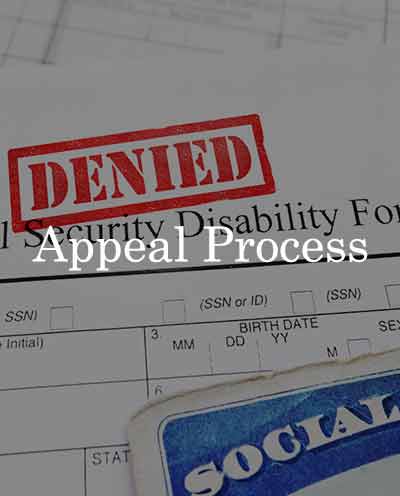Can Veterans Collect Both SSDI and VA Disability Benefits?
Yes, veterans can collect both VA disability benefits and Social Security Disability Insurance (SSDI) at the same time. These are two different government programs that don’t affect each other.
If you’re receiving VA disability or in the process of applying for VA Disability, you still need to apply for SSDI separately.
A key point to remember is that SSDI is not based on financial need. This means your VA disability payments won’t reduce how much you get from SSDI.
Here’s what you need to know about collecting both benefits, including eligibility requirements, how much you might receive, and why you should consider contacting a Social Security Disability Lawyer to improve your chances at receiving benefits.
How SSDI and VA Disability Are Different
While you can be eligible for both benefits, these programs work very differently and have separate requirements.
VA Disability Benefits
To get VA disability, you need to show that your disability is connected to your military service. Your condition must have started during your service or worsened because of your military duties.
The VA uses a rating system from 10% to 100%, going up in 10% steps. Your monthly payment depends on your disability rating. The higher your rating, the more you receive each month. The VA also gives partial payments based on your disability level.
The VA and Social Security are separate agencies, so they process applications differently and at different speeds.
SSDI Benefits
The Social Security Administration has stricter rules about what counts as a disability. Unlike VA benefits, your disability doesn’t need to be related to your military service.
For SSDI, the Social Security Administration looks at whether you can work or not—there’s no in-between. You either qualify or you don’t. To get SSDI benefits, you must show:
- You have a physical or mental condition that prevents you from working at a substantially gainful activity at the time of your application.
- Your condition will last at least 12 months or could result in death.
- You’re under 65 years old.
- You must have earned 20 Social Security credits in the previous 10 years before your disability started.
Your SSDI payments are based on how much you earned during your working years, not how severe your disability is.
Why You Can Get Both
SSDI and VA disability don’t affect each other because they’re run by different agencies with different rules. You have to apply to each program separately, and they might make different decisions even if they look at the same medical records.
The agencies also work at different speeds. Depending on when and where you apply, you might wait months or even years for a decision from either program. Having a Social Security Disability Lawyer assist you with the process will help speed everything up for you.
Work Requirements for SSDI
To qualify for SSDI, you need to have worked enough to earn what Social Security calls “work credits.” Most people need to have worked more than 5 of the last 10 years before becoming disabled.
How Military Service Counts
Your military service counts toward these work requirements just like any other job, as long as you paid Social Security taxes while serving. The time you spent in the military helps you meet the work requirements for SSDI.
Work Requirements by Age
How much work you need depends on how old you are when you become disabled:
- Before age 28: 1.5 years
- Age 30: 2 years
- Age 34: 3 years
- Age 38: 4 years
- Age 42: 5 years
- Age 46: 6 years
- Age 50: 7 years
- Age 54: 8 years
- Age 58: 9 years
- Age 60: 9.5 years
Faster SSDI Processing for Some Veterans
Some veterans can get their SSDI applications processed faster than usual.
100% Disabled Veterans
If you have a 100% Permanent and Total (P&T) disability rating from the VA, you can get expedited processing for your SSDI application. This program started in 2014 to help veterans with the highest disability ratings.
To get this faster processing, tell the SSA that you’re a “Veteran rated 100% P&T” when you apply, and include your VA rating letter.
If you’re a veteran rated 100% P&T and work with a Social Security Disability Lawyer, you have a higher chance at receiving SSDI benefits along with your VA benefits.
Wounded Warriors
If you became disabled while on active duty on or after October 1, 2001, you can also get expedited processing. Your injury doesn’t have to be from combat—any injury during active duty counts.
What To Expect
Even with expedited processing, your application can still take several months. If you are initially denied and need to appeal the decision, you still will have faster processing of your application.
Remember that getting faster processing doesn’t guarantee approval. You still need to meet all the regular SSDI requirements and provide good medical evidence.
How To Apply for SSDI as a Veteran
 In order to apply for Social Security Disability benefits, you’ll need to file an application with the Social Security Administration. This application requires detailed information about your medical condition, work history, and other relevant details. The goal is to provide enough evidence to prove that you are unable to work due to your disability.
In order to apply for Social Security Disability benefits, you’ll need to file an application with the Social Security Administration. This application requires detailed information about your medical condition, work history, and other relevant details. The goal is to provide enough evidence to prove that you are unable to work due to your disability.
The Application Requirements
The initial application is crucial because it sets the foundation for your claim. Additionally, you’ll need to provide medical records, documentation of how your disability affects your ability to work, and any other evidence that supports your claim. This may include:
- Medical Records: These should detail your diagnosis, treatment history, and any limitations your condition imposes on your daily life and work abilities
- Work History: Include a detailed account of your previous employment, your duties, and how your disability has impacted your ability to perform those duties
- Additional Evidence: Letters from healthcare providers, therapists, or others who can attest to your condition and its impact on your life
Starting the Application Process
The SSA offers an online disability application, which allows you to apply from the comfort of your home. Additionally, this online process is convenient and can be done at any time, eliminating the need to visit a local office or wait for an appointment. The online application walks you through the necessary steps, ensuring you provide all required information.
If you are not comfortable completing the process online but you still want to apply for social security disability benefits, you should consider contacting a Social Security Disability Lawyer today for assistance.
What to Expect After You Apply
Once your application is submitted, the SSA will review it and make an initial decision. Unfortunately, many claims are denied at this stage. However, a denial doesn’t mean the end of the road; it’s just the beginning of the appeals process.
If your claim is denied, you’ll receive a notice explaining why and what your options are for appeal. After you are denied, contacting a Social Security Disability Lawyer can be extremely helpful. They can provide you with the guidance needed to navigate through the rest of the process.
How a Social Security Disability Lawyer Can Help Veterans Receive Benefits
Veterans face some unique challenges when applying for SSDI benefits. Having professional legal assistance can help you overcome any challenges during this process.
Common Problems Veterans Face
SSDI requires proof that you can’t do any type of work, not just military jobs. Your VA medical records might not have enough information to show this broader work disability.
You also need to include all of your disabling conditions, not just the ones the VA has rated. Sometimes veterans focus only on their service-connected disabilities and forget to mention other health problems that also affect their ability to work.
When You Need an SSDI Lawyer
The SSDI application process can be complicated and confusing. Getting help from a Social Security Disability Lawyer can be valuable, especially if your application gets denied and you need to appeal.
Lawyers who understand both VA and SSDI systems can help make sure your application includes all the right information and is presented properly. They can also represent you at hearings and help explain complex medical or legal issues.
Veterans have the right to apply for both VA disability and SSDI benefits. These are separate programs that don’t affect each other, so you can receive both without any reduction in your payments.
The key things to remember are that you need to apply separately for each program, they have different requirements, and some veterans can get faster processing for their SSDI applications.
The application process can be complex, but understanding how both systems work and working with a legal professional can help you get all the benefits you’re entitled to. If you’re having trouble with your SSDI application or need to appeal a denial, talking to an experienced Social Security Disability Lawyer will make the process easier and help protect your rights.
"*" indicates required fields
Do you need to appeal a decision made by the SSA?
Do you have a severe medical condition?
Wondering how much your benefits will be?
Were you injured recently?
Wondering about the social security disability claims process?
Are you a disabled veteran?
Yes, veterans can collect both VA disability benefits and Social Security Disability Insurance (SSDI) at the same time. These are two different government programs that don’t affect each other.
If you’re receiving VA disability or in the process of applying for VA Disability, you still need to apply for SSDI separately.
A key point to remember is that SSDI is not based on financial need. This means your VA disability payments won’t reduce how much you get from SSDI.
Here’s what you need to know about collecting both benefits, including eligibility requirements, how much you might receive, and why you should consider contacting a Social Security Disability Lawyer to improve your chances at receiving benefits.
How SSDI and VA Disability Are Different
While you can be eligible for both benefits, these programs work very differently and have separate requirements.
 VA Disability Benefits
VA Disability Benefits
To get VA disability, you need to show that your disability is connected to your military service. Your condition must have started during your service or worsened because of your military duties.
The VA uses a rating system from 10% to 100%, going up in 10% steps. Your monthly payment depends on your disability rating. The higher your rating, the more you receive each month. The VA also gives partial payments based on your disability level.
The VA and Social Security are separate agencies, so they process applications differently and at different speeds.
SSDI Benefits
The Social Security Administration has stricter rules about what counts as a disability. Unlike VA benefits, your disability doesn’t need to be related to your military service.
For SSDI, the Social Security Administration looks at whether you can work or not—there’s no in-between. You either qualify or you don’t. To get SSDI benefits, you must show:
- You have a physical or mental condition that prevents you from working at a substantially gainful activity at the time of your application.
- Your condition will last at least 12 months or could result in death.
- You’re under 65 years old.
- You must have earned 20 Social Security credits in the previous 10 years before your disability started.
Your SSDI payments are based on how much you earned during your working years, not how severe your disability is.
"*" indicates required fields
Why You Can Get Both
SSDI and VA disability don’t affect each other because they’re run by different agencies with different rules. You have to apply to each program separately, and they might make different decisions even if they look at the same medical records.
The agencies also work at different speeds. Depending on when and where you apply, you might wait months or even years for a decision from either program. Having a Social Security Disability Lawyer assist you with the process will help speed everything up for you.
Work Requirements for SSDI
To qualify for SSDI, you need to have worked enough to earn what Social Security calls “work credits.” Most people need to have worked more than 5 of the last 10 years before becoming disabled.
How Military Service Counts
Your military service counts toward these work requirements just like any other job, as long as you paid Social Security taxes while serving. The time you spent in the military helps you meet the work requirements for SSDI.
Work Requirements by Age
How much work you need depends on how old you are when you become disabled:
- Before age 28: 1.5 years
- Age 30: 2 years
- Age 34: 3 years
- Age 38: 4 years
- Age 42: 5 years
- Age 46: 6 years
- Age 50: 7 years
- Age 54: 8 years
- Age 58: 9 years
- Age 60: 9.5 years
Were you injured recently?
Do you have a severe medical condition?
Faster SSDI Processing for Some Veterans
Some veterans can get their SSDI applications processed faster than usual.
100% Disabled Veterans
If you have a 100% Permanent and Total (P&T) disability rating from the VA, you can get expedited processing for your SSDI application. This program started in 2014 to help veterans with the highest disability ratings.
To get this faster processing, tell the SSA that you’re a “Veteran rated 100% P&T” when you apply, and include your VA rating letter.
If you’re a veteran rated 100% P&T and work with a Social Security Disability Lawyer, you have a higher chance at receiving SSDI benefits along with your VA benefits.
Wounded Warriors
If you became disabled while on active duty on or after October 1, 2001, you can also get expedited processing. Your injury doesn’t have to be from combat—any injury during active duty counts.
What To Expect
Even with expedited processing, your application can still take several months. If you are initially denied and need to appeal the decision, you still will have faster processing of your application.
Remember that getting faster processing doesn’t guarantee approval. You still need to meet all the regular SSDI requirements and provide good medical evidence.
 How To Apply for SSDI as a Veteran
How To Apply for SSDI as a Veteran
In order to apply for Social Security Disability benefits, you’ll need to file an application with the Social Security Administration. This application requires detailed information about your medical condition, work history, and other relevant details. The goal is to provide enough evidence to prove that you are unable to work due to your disability.
The Application Requirements
The initial application is crucial because it sets the foundation for your claim. Additionally, you’ll need to provide medical records, documentation of how your disability affects your ability to work, and any other evidence that supports your claim. This may include:
- Medical Records: These should detail your diagnosis, treatment history, and any limitations your condition imposes on your daily life and work abilities
- Work History: Include a detailed account of your previous employment, your duties, and how your disability has impacted your ability to perform those duties
- Additional Evidence: Letters from healthcare providers, therapists, or others who can attest to your condition and its impact on your life
Starting the Application Process
The SSA offers an online disability application, which allows you to apply from the comfort of your home. Additionally, this online process is convenient and can be done at any time, eliminating the need to visit a local office or wait for an appointment. The online application walks you through the necessary steps, ensuring you provide all required information.
If you are not comfortable completing the process online but you still want to apply for social security disability benefits, you should consider contacting a Social Security Disability Lawyer today for assistance.
What to Expect After You Apply
Once your application is submitted, the SSA will review it and make an initial decision. Unfortunately, many claims are denied at this stage. However, a denial doesn’t mean the end of the road; it’s just the beginning of the appeals process.
If your claim is denied, you’ll receive a notice explaining why and what your options are for appeal. After you are denied, contacting a Social Security Disability Lawyer can be extremely helpful. They can provide you with the guidance needed to navigate through the rest of the process.
How a Social Security Disability Lawyer Can Help Veterans Receive Benefits
Veterans face some unique challenges when applying for SSDI benefits. Having professional legal assistance can help you overcome any challenges during this process.
Common Problems Veterans Face
SSDI requires proof that you can’t do any type of work, not just military jobs. Your VA medical records might not have enough information to show this broader work disability.
You also need to include all of your disabling conditions, not just the ones the VA has rated. Sometimes veterans focus only on their service-connected disabilities and forget to mention other health problems that also affect their ability to work.
When You Need an SSDI Lawyer
The SSDI application process can be complicated and confusing. Getting help from a Social Security Disability Lawyer can be valuable, especially if your application gets denied and you need to appeal.
Lawyers who understand both VA and SSDI systems can help make sure your application includes all the right information and is presented properly. They can also represent you at hearings and help explain complex medical or legal issues.
Veterans have the right to apply for both VA disability and SSDI benefits. These are separate programs that don’t affect each other, so you can receive both without any reduction in your payments.
The key things to remember are that you need to apply separately for each program, they have different requirements, and some veterans can get faster processing for their SSDI applications.
The application process can be complex, but understanding how both systems work and working with a legal professional can help you get all the benefits you’re entitled to. If you’re having trouble with your SSDI application or need to appeal a denial, talking to an experienced Social Security Disability Lawyer will make the process easier and help protect your rights.
Wondering about the next steps in the claim process?
Do you need to appeal a decision made by the SSA?
This is New York Attorney Advertising. This website is designed for general information only. The information presented in this site should not be construed to be formal legal advice nor the formation of a lawyer/client relationship. We may rely on co-counsel for some or all of the cases. Prior results do not guarantee a similar outcome.











